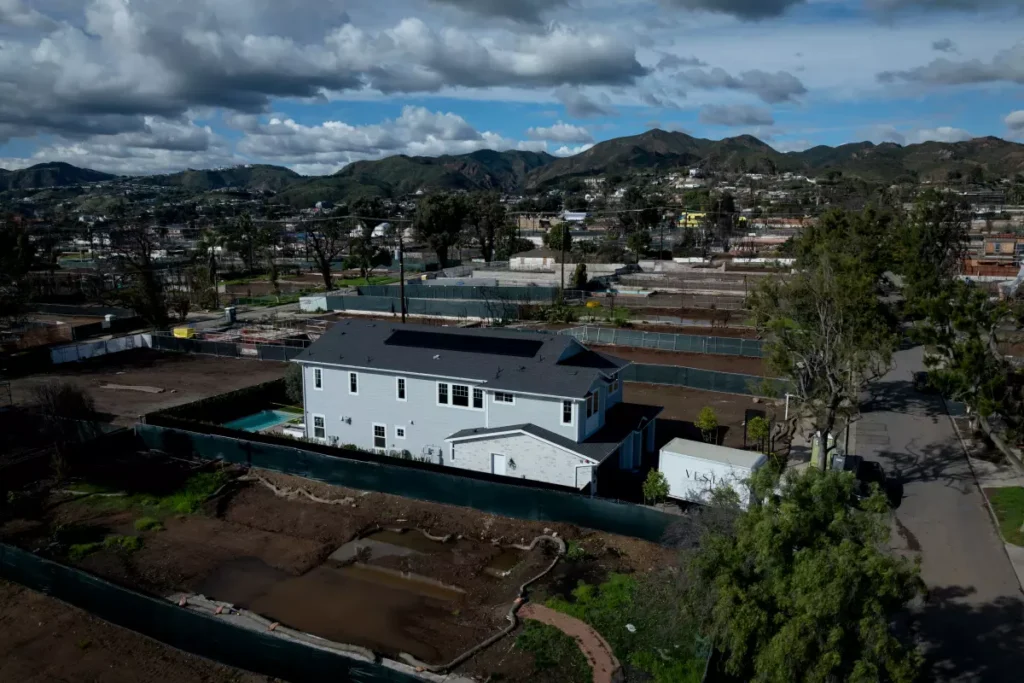
In a city where trends are born and billion-dollar ideas often begin, Los Angeles has positioned itself at the intersection of cryptocurrency and real estate. What started as a marketing spectacle—luxury homes advertised for sale in Bitcoin and Ethereum—has transformed into a serious debate about the future of property ownership and finance. As both markets evolve, many in the real estate and tech industries are wondering whether this collision was just a passing phase or the foundation of a new era in property transactions.
During the peak of the cryptocurrency boom in 2021 and 2022, Los Angeles quickly became one of the most active U.S. markets for digital currency real estate transactions. Wealthy investors and crypto entrepreneurs sought to convert their digital gains into physical assets, and high-end homes in Beverly Hills, Malibu, and West Hollywood were marketed specifically to buyers with crypto portfolios.
Companies like Propy and Lofty AI emerged, offering platforms where real estate transactions could be completed through smart contracts on the blockchain. These companies promised faster closings, lower fees, and enhanced transparency, generating significant excitement among investors and real estate professionals alike.
However, the momentum did not last. By late 2022, the crypto market suffered a major downturn. Bitcoin, Ethereum, and other digital currencies lost more than half their value, leaving many would-be buyers without the funds needed to complete transactions. Real estate agents began reporting failed escrows and canceled offers as the value of buyers’ digital assets evaporated.
At the same time, regulators began paying closer attention. The U.S. Securities and Exchange Commission and the Financial Crimes Enforcement Network increased scrutiny of cryptocurrency transactions, particularly in high-value real estate deals. Concerns about money laundering, identity verification, and the legality of smart contracts led to new rules requiring Know Your Customer and Anti-Money Laundering compliance. These added layers of regulation significantly slowed crypto-based real estate activity across the country, including in Los Angeles.
The traditional housing market in Los Angeles also began to soften. Rising mortgage rates, inflation, and economic uncertainty caused demand to decline, particularly at the luxury end. This cooling market made it even harder for crypto-based transactions to gain traction, as both digital and traditional financing options became more limited.
Despite the pullback in high-profile deals, the underlying technology behind crypto real estate continues to develop. Blockchain infrastructure is increasingly being used to modernize and streamline the real estate industry in ways that go far beyond paying for a home with Bitcoin.
Platforms such as RealT, Roofstock OnChain, and Lofty now offer tokenized property investments. These platforms allow investors to purchase fractional ownership in rental homes using either cryptocurrency or U.S. dollars. Each investment is recorded on the blockchain, and token holders can earn passive rental income. This model has become particularly attractive to younger investors who value liquidity and transparency.
In Los Angeles, Roofstock has introduced several single-family rental properties on its blockchain platform, targeting both institutional and individual investors. Investors can buy a portion of a property, receive rental distributions, and later sell their ownership stake without needing to go through a traditional broker or escrow process.
Local governments are also showing interest. In 2024, Los Angeles County partnered with a private technology firm to pilot a blockchain-based title registry. The goal is to reduce property fraud, speed up transaction times, and eliminate redundancies in the public records system. If successful, the program could become a model for counties across the United States.
Experts remain divided about what role cryptocurrency will play in real estate over the long term. Some industry veterans believe that crypto-based home purchases were always more about headlines than substance. They point out that converting digital assets into cash is often still required due to volatility, and that most buyers ultimately fall back on traditional funding sources.
Others argue that the real revolution is happening quietly behind the scenes. They believe that blockchain technology will become a permanent part of real estate infrastructure, even if cryptocurrency payments never become widespread.
For Los Angeles, a city defined by innovation and reinvention, the crypto-real estate experiment is far from over. While the early hype may have faded, the efforts to digitize and decentralize real estate continue to gain traction. Whether through tokenized investments, blockchain-backed title transfers, or smart contract-based transactions, the seeds of change have been planted.

Bella Richardson is a dedicated journalist and news analyst known for her clear, thoughtful reporting and her ability to make complex stories accessible to a broad audience. With a Master of Science in Mass Communication, she brings both academic insight and real-world experience to her coverage of breaking news and trending topics throughout the United States.






